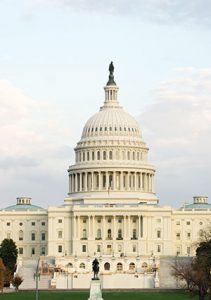 When veterans look for a fulfilling and exciting civilian career, some set their sights on the sky. However, despite having the skills to make them successful in the air—leadership, discipline and thriving under pressure—the prohibitive cost of flight training leaves far too many grounded.
When veterans look for a fulfilling and exciting civilian career, some set their sights on the sky. However, despite having the skills to make them successful in the air—leadership, discipline and thriving under pressure—the prohibitive cost of flight training leaves far too many grounded.
But now, a DAV-supported bill would help cover training programs.
The Veterans Flight Training Responsibility Act of 2024 (H.R. 7613) would get more veterans in commercial cockpits by authorizing the Department of Veterans Affairs to provide up to $100,000 in education funds for public institutions—about what earning a commercial pilot license with no experience costs. This amount would replace current caps at $26,000 per academic year, which can leave veterans scrambling to find other funding sources.
The U.S. Bureau of Labor Statistics estimates that more than 16,000 airline and commercial pilot jobs will be created each year over the next decade. However, that may not be enough. One independent analysis estimates a pilot shortage of 80,000 by 2032.
“Student veterans are going through their G.I. bill too fast and end up having to pay out of pocket or wait a semester before they use their G.I. bill the next academic year for flight training,” said Rep. Tom Kean of New Jersey, who introduced the bill. “I am proud to introduce this bill, with my colleague Rep. Morgan McGarvey, to expedite the flight training process for veterans so they can pursue their aviation careers without financial burden or unnecessary delays, honoring their service with the support they deserve.”
Increasing veteran pilots wouldn’t just benefit the airline industry. With a 2023 median yearly pay just north of $171,000, veteran pilots would transition to a rewarding and lucrative career.
“We should be making it easier, not harder, for our veterans to use their education benefits however they see fit,” added McGarvey of Kentucky. “This legislation makes it easier for veterans to become pilots by creating more flexibility in their benefits to attend flight school while also setting a cap on how much flight schools can charge, ensuring bad actors won’t screw over our vets in the process.”
Helping to get more veterans flying is a common-sense solution for our veterans, the airline industry and our economy.
“Becoming a pilot may be a lofty goal, but it should also be attainable,” said DAV National Legislative Director Joy Ilem. “DAV is proud to support the Veterans Flight Training Responsibility Act of 2024, which directs crucial VA funding to institutions that will educate tomorrow’s airline pilots.”






